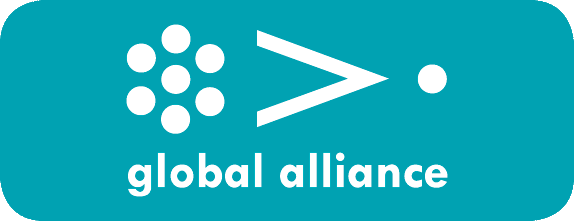Sitting on a global Board
By Steven Shepperson-Smith, FCIPR, Chart.PR
This is a hill I will die upon. You have not had the full Board member experience until seeing a colleague present a report using the medium of hip hop.
My Nguyen Khoa is the Chairman of the Vietnam Public Relations Network. He is a highly experienced and respected PR consultant, with an impressive 20+ year career working in government communications and for major multinationals, including as the former Director of Communications and Public Affairs for Coca-Cola in South East Asia. But it’s 8pm in Hanoi (lunchtime in London) and he wants to both relax and entertain his fellow Board members.
It’s a creative way to update the Board about the opportunities to get involved in World PR & Communications Month and also makes the point that being a Board member need not always be a sober endeavour.
Welcome to the Board of the Global Alliance for Public Relations and Communications Management (Global Alliance). This is a sprawling “working Board”: 29 voting members from 23 countries spread across six continents. Board meetings take exactly 1.5 hours every month along with two in person full day strategy sessions per year. They are a whirlwind of updates and insights in multiple accents, with specialist invited guests also sometimes joining the meetings.
In case you have not heard of the organisation before, Global Alliance is the representative body for national public relations membership associations. Academics, professional training bodies, communication organisations and practitioners in countries without a national association can also become members.
Global Alliance has increased its members by over 150% in the last five years, last year delivered over £3m in education, training and development free to its members, while also hosting and participating in over 250 communication and research projects around the world. Global Alliance also organises the World PR & Communication Awards, a showcase for industry best practice, and the World PR Forum, where academics and practitioners can meet and share knowledge.
A loose meeting of national membership associations from 1996 -2000, Global Alliance formed its first Board in 2002. It has since had 11 Chairs from seven countries. The CIPR was a founder member and has contributed two past Presidents, Colin Farrington (2007-2009) and Professor Anne Gregory (2013-2015).
There is a Board for everyone and when accepting an opportunity it is important to think about the value exchange you want from the role. Paid roles are of course extremely sought after. Many people early in their Board career seek unpaid experience as a non-exec or trustee that might translate to paid positions in the future. Others will want to volunteer for causes about which they are passionate.
Global Alliance is the largest body of its kind on the planet, ultimately representing around 360,000 practitioners, academics and students. Yet it has only one paid employee, hence the need for its Board members to commit their time to organise theme months and events.
No-one embodies the work ethic like current President Justin Green. Hailing from Ireland, he is a dynamo, never seeming to call me from the same country twice. In the past year he has become a Professor of Practice at the University of Liberal Arts in Bangladesh, been interviewed on Peruvian TV about the impact of AI on communications professionals, created the world’s first online history of the public relations industry in collaboration with the Museum of Public Relations in New York and launched the world’s first PR Leadership University in Nigeria.
The Global Alliance Board presents its own set of challenges given the span of its membership. Bringing the Board together – never mind the global industry – is a huge task.
At an operational level, WhatsApp is vital between meetings, enabling Board members to update on projects during their working days, whichever time zone they are in.
Strategically, the challenge is that national PR associations are finding membership acquisition and engagement a growing challenge (pun intended). Being one level removed from individual practitioners makes Global Alliance’s task even harder.
The current Board is working on an exciting project to make Global Alliance both more sustainable and more vital to the global industry. A delegation led by Justin met with the United Nations earlier this year with the aim of embedding Responsible Communication into its core goals. The organisation has meetings scheduled with a range of other global organisations to the same end, including the Association of South East Asian Nations, the African Union, World Bank and European Union.
In this era of information overload and fake news, there is a significant opportunity to highlight the professional communicators – including PR practitioners and journalists – who sign up to explicit ethical codes of conduct, such as the one that governs all CIPR members.
Getting Responsible Communication formally recognised by the United Nations and other organisations involved in supranational governance is the sort of large audacious goal that can be a unifying project for Global Alliance Board and for practitioners across the world over the years to come.
This article was published as part of a series in this week's CIPR Influence magazine on becoming a Trustee or non-exec Board member. Read the original post here.
Steven Shepperson-Smith, FCIPR, Chart.PR, Immediate Past President, CIPR. Board Member, Global Alliance.
Any thoughts or opinions expressed are that of the authors and not of Global Alliance.
My Nguyen Khoa on the decks


